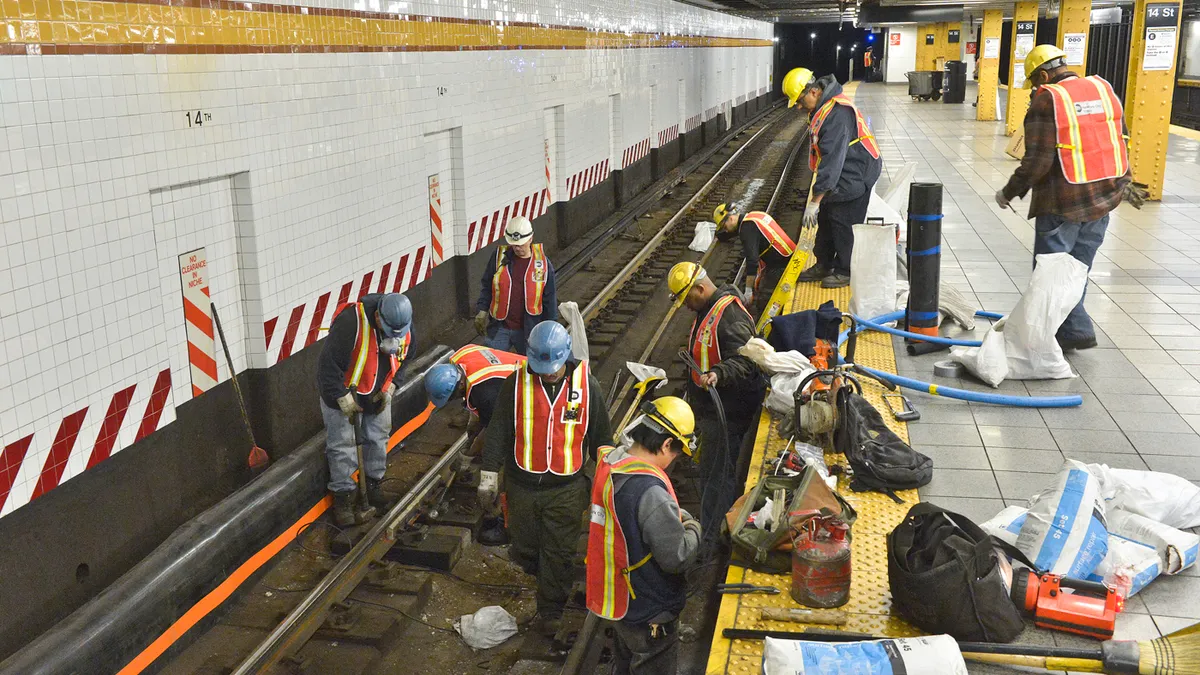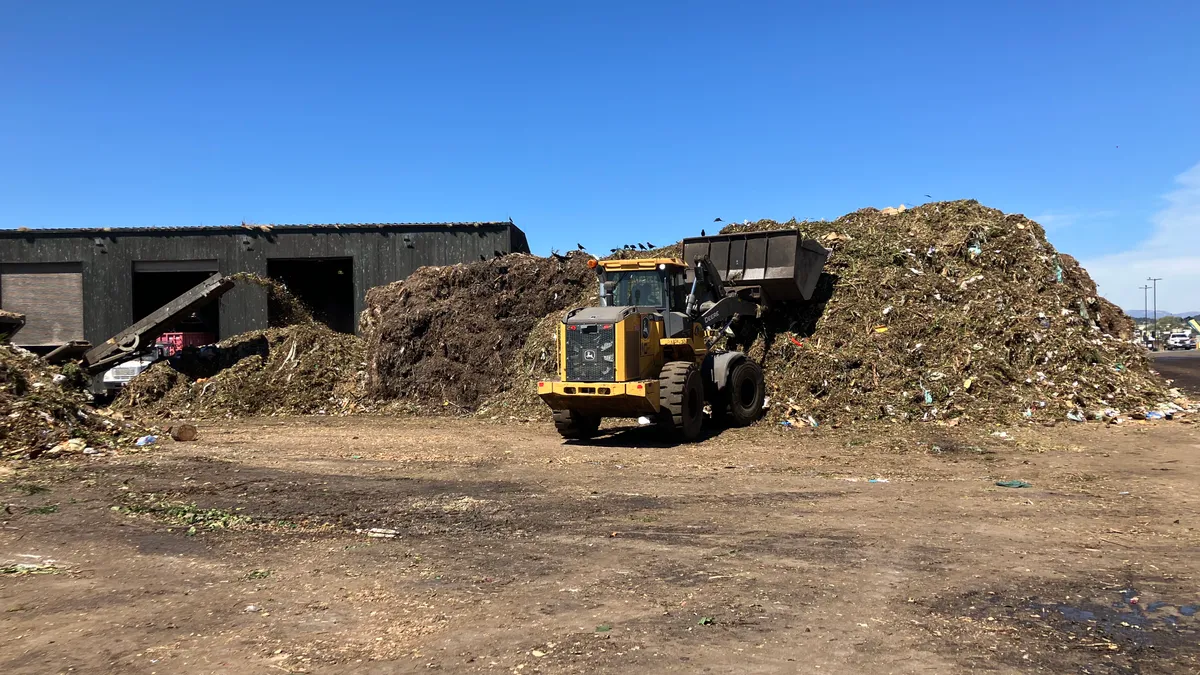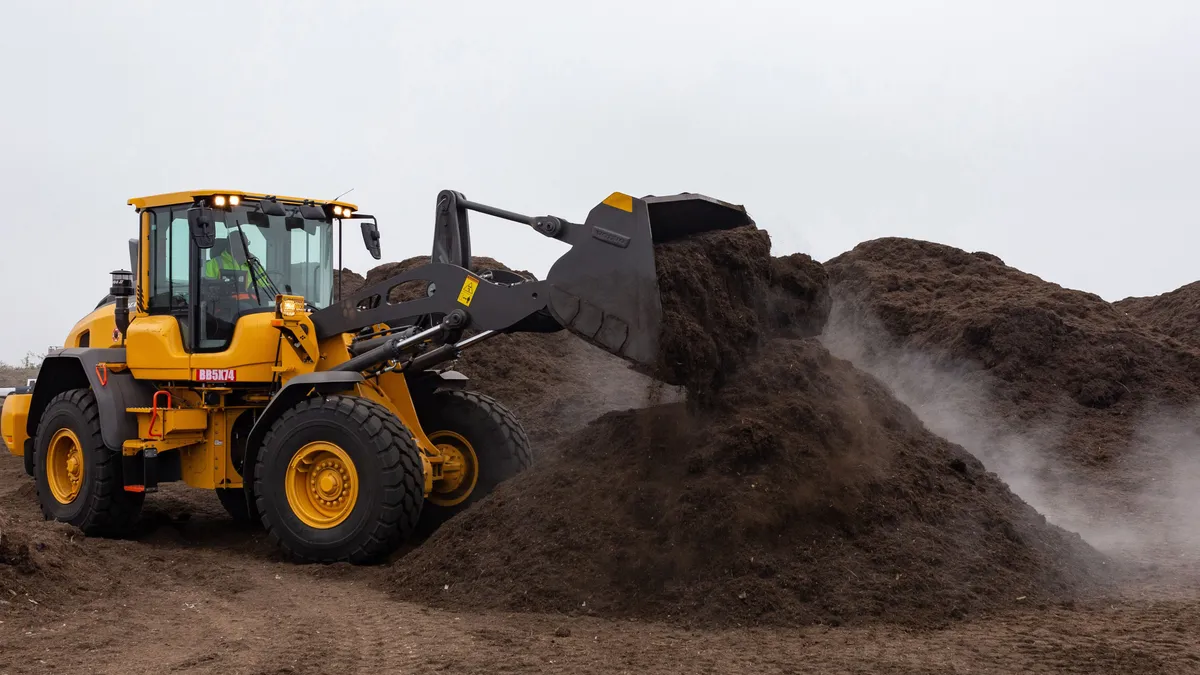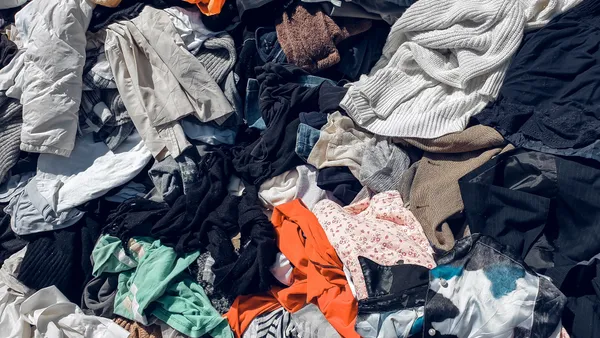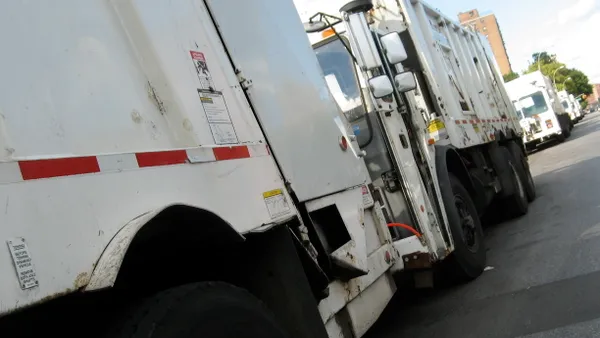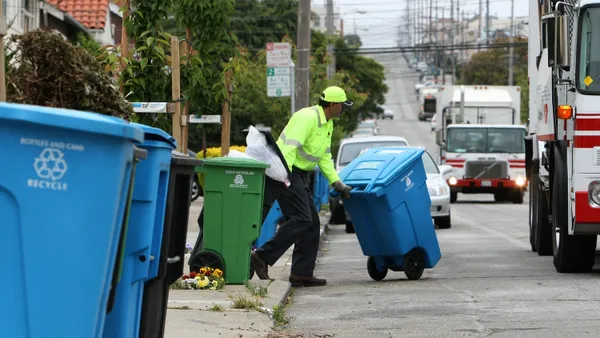Dive Brief:
- New York's Metropolitan Transportation Authority (MTA) has announced a new initiative called "Operation Clean Sweep" to tackle trash on the city's subway tracks, according to New York Business Journal. The first phase began in June and has increased cleaning from 34 stations every two weeks to 94 stations.
- The second phase will start on Sept. 12 with a two-week system-wide cleaning of 469 stations in the city. During this time more than 500 workers will work day and night to cover approximately 10 miles of track within the stations.
- The third phase will bring in new portable vacuum units, followed by a final phase with three new track vacuum trains that can remove up to 14 cubic yards of waste per day and 27 new refuse cars to move wheeled garbage containers out of the stations.
Dive Insight:
Subway trash is a chronic issue that attracts rodents, sparks track fires and causes delays. It's such a widespread problem that local students even brought their own track vacuum invention to the White House science fair this year. While the city has been focused on zero waste recently, the MTA is a state agency and Governor Andrew Cuomo's recent interest in public transportation has helped lead to additional funding for the system.
"We’re approaching this as a sustained effort to get the tracks clean, and keep them as clean as possible over the long haul," said Veronique Hakim, president of NYC Transit, in a press release. "Even as we redouble our efforts, it’s important for everyone to realize that riders have a critically important role to play as well – keeping the tracks clean means that everyone has to pitch in by disposing of trash properly."
The MTA's littering psychology experiment of removing bins from station platforms has been going on for years and had disputed results. Last year, the agency reported that riders were leaving less trash behind due to the experiment, but an audit from the state comptroller's office said otherwise. Whether riders will cooperate in keeping the tracks clean, or be happy enough to overlook the other challenges of this overburdened system, remains to be seen.



